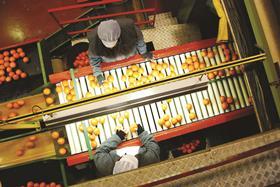
Spain’s agrifood cooperatives have weathered one of the most challenging economic periods in the country’s history, posting an 8 per cent increase in turnover in 2013. According to data from the Observatory of Agrifood Cooperatives (OSCAE) presented during the general assembly of Cooperativas Agro-alimentarias (Spanish Agrifood Cooperatives) turnover rose from €23.82bn to €25.69bn in the past year.
The cooperative grouping, which represents Spain’s 3,844 cooperatives working in the agrifood sector, cited stronger prices across some of the country’s main agricultural products, including fruits and vegetables, olive oil, olives and wines, as the main reason for the improved results.
The data shows that the cooperative sector increased its presence on international markets and now account for 27 per cent of Spain’s total export turnover in the food industry.
The number of workers employed by its members increased by 8.25 per cent in the five years between 2007 and 2012, proving the important role the sector plays in job creation and growth, the group said.
Cooperativas Agro-alimentarias held its general assembly in Madrid last week, during which Angel Villafranca was elected as the group’s new president. Villafranca, who also heads up the Agrifood Cooperatives of Castilla-La Mancha, replaces Fernando Marcén, former president of the Agrifood Cooperatives of Aragon.
Villafranca said the new presidency would continue “with the policy of effort and integration of our food companies, carried out by Fernando Marcén with unmistakable success and by organisational expertise of the entire professional team.”
Among the objectives set out by the new presidency, Villafranca said the focus would be on further consolidation and integration in the coming years. He said Spain’s agricultural production outside the cooperatives could not continue in their present disorganised and atomised state, and called for “an urgent restructuring process that allows us to minimise the effects of increasing external competition and highly concentrated customers, maximising the benefits from the internationalisation process, particularly in emerging markets”.



